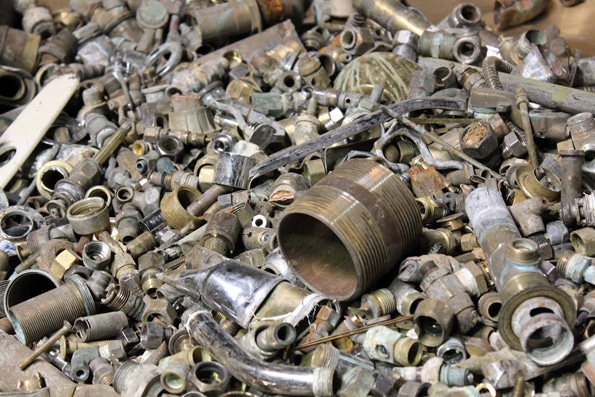
In July, China issued two filings registered with the World Trade Organization (WTO) signaling its intent to forbid 24 kinds of solid wastes by the end of 2017. This action caused a quick reaction from the waste and recycling industry, including comments from the Institute of Scrap Recycling Industries (ISRI).
ISRI argued that China’s ban on “solid waste” will have a negative economic impact on the recycling industries in the United States and China, the manufacturing sector in China that relies on these highly valuable commodities and the environmental sustainability opportunities from the use of recyclable materials in China.
Now, IRSI has released more comments to the WTO in response to China’s notification of its intent to revise its Identification Standards for Solid Wastes General Rules.
Some of ISRI’s comments are below and the full text is available here.
“ISRI supports efforts on the part of the Chinese Government to develop guidelines for the identification of solid wastes, crafted in such a way as to promote environmental sound management of such wastes. … There is a need to distinguish scrap from waste within the Standard, as well as in the underlying regulations and related notices issued by the Chinese, in order to better facilitate the legitimate trade of high-quality scrap commodities and at the same time prevent the improper trade of waste materials. Unfortunately, the Standard as drafted uses the term ‘solid waste’ inclusive of both trash and scrap, creating confusion and uncertainty within the U.S. and global recycling industry. …
“Simply put, scrap is not waste. Waste – often called “trash”, “refuse” or “garbage – is a material that has no value and is not wanted. Wastes are disposed of because they are no longer useful. In contrast, Scrap – often called “recyclable material” or “secondary material” – is a valuable commodity sold in the global marketplace according to industry-wide, globally recognized specifications as a raw material in lieu of virgin materials for manufacturing. Worldwide, more than 800 million metric tons of scrap commodities are consumed each year. …
“ISRI’s Scrap Specifications Circular contains several hundred specifications covering ferrous scrap, nonferrous scrap, glass cullet, paper stock, plastic scrap, electronics scrap, and tire scrap. These specifications are used by industry members to facilitate the buying and selling of their materials and by customs officials for customs clearance purposes. To that end, ISRI supports a ban on unusable waste that does not meet the specifications. …
“ISRI respectfully requests the Chinese government use more specific terminology in reference to recyclable materials (such as 回收料) in order to properly distinguish between high-value scrap commodities and waste. This is an opportunity to incorporate such terminology in the Standard and other rules and regulations under consideration by the Chinese Government.”
About the Author(s)
You May Also Like


